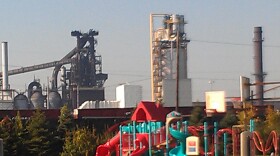Economists are making dire predictions about the potential effect of a trade war on the domestic auto industry.
Officials in Washington and Ottawa are announcing tariffs on steel and aluminum, as well as auto parts. Most cars and trucks built in America are assembled from parts produced in Canada and elsewhere. And, many vehicles assembled in Canada are built with parts produced in the U.S. The vehicles are sold on both sides of the border.
Brian DePratto is an economist with TD Bank.
He says if both sides impose protective tariffs, one in ten Canadian auto workers will lose their jobs over the next three years. The number jumps to one in five in Ontario, the province most heavily tied to the auto industry.
DePratto says tariffs will increase new car and truck prices higher than consumers will want to pay.
“You know, putting a 25% tax, which is what this is, on top of that can really change those spending decisions,” says DePratto. “So it really has that slowing effect both in terms of the production side and consumer side.”
But another study suggests a trade war with Canada, China and other U.S. trading partners could have a significant impact on American auto workers.
Mary Lovely is an economist at Syracuse University. She’s also a senior fellow with the Peterson Institute for International Economics. The institute recently released its own study predicting a widening trade war may reduce domestic auto sales by nearly 10%.
Lovely says the slowdown in demand may cost 195,000 U.S. auto workers their jobs.
“There is a very concerted effort to disrupt supply chains of multi-national firms…. This does not bode well for the health of the automobile industry,” says Lovely.
Lovely predicts a damaging trade war may mean the permanent loss of those jobs.
But TD Bank economist Brian DePratto says there may be silver lining.
“Right now, we’re just talking about this as a risk,” says DePratto. “The reality is hopefully there will be recognition this is not something that really benefits anybody.”








